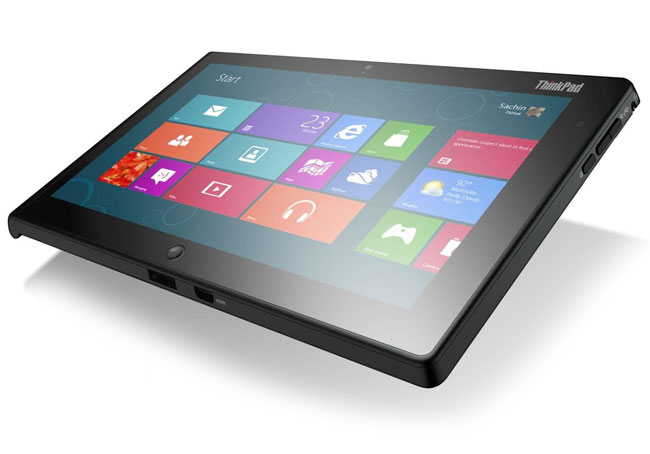 NEWS
NEWS
 NEWS
NEWS
 NEWS
NEWS
![]() Windows 8 hasn’t exactly had the best of receptions since its launch in fall of last year, but despite the negativity surrounding it there’s still a large body of opinion that insists it remains the best operating system around for those looking to get things done.
Windows 8 hasn’t exactly had the best of receptions since its launch in fall of last year, but despite the negativity surrounding it there’s still a large body of opinion that insists it remains the best operating system around for those looking to get things done.
The problems with Windows have been cited numerous times – the lack of a Start Menu, the unpopular Metro interface, the unintuitive controls, and the fact that Windows RT doesn’t support all of the features that enterprise users need are just some of the reasons why Microsoft’s new OS hasn’t gone down too well.
But not everyone has been so disenfranchised by these problems (indeed, for many the above-mentioned issues are no problem at all), particularly here at SiliconANGLE where we have been some of the strongest advocates for Windows 8, at least for the enterprise. Now, yet another respected voice has throw his weight behind Microsoft’s new OS in the form of Moor Insight & Strategy President Patrick Moorhead, following one of the most in-depth studies of Windows 8’s enterprise potential so far.
At a time when Apple is busy talking up the fact that 94% of Fortune 500 companies have embraced its iPad, with only Android mentioned as a possible contender, Moorhead’s refreshing take on Windows 8 should cause many to rethink those perceptions.
Called The Latest Extreme Low Power Windows Tablets Now Ready for the Enterprise, Moorhead’s report centered on an in-depth examination of three of the most powerful Windows 8 tablets available – the Dell Latitude 10, HP’s ElitePad 900, and the Lenovo ThinkPad 2. The study looked at how these three tablets compared with the latest iPad in terms of enterprise features, and concluded that those running Windows 8 have a huge advantage over Apple’s device.
“The new breed of enterprise tablets provides the same comprehensive PC enterprise features deployed and already in use by enterprises,” states the report.
“While the iPad provides many new features, enterprises must evaluate, deploy, train IT and purchase new tools. Domain Join and Active Directory are not supported on the iPad.”
The report also cites the fact that all three Windows 8 tablets it looked at offer backward compatibility as another huge advantage. Meanwhile, Moorhead takes issue with the iPad’s security, saying that most IT departments will find it necessary to add on extra security features to these devices, something that could make them prohibitively expensive.
“Enterprises will not need to pay more to acquire the new breed of Windows tablets, and when factoring in additional new management tools, iPads cost more,” writes Moorhead.
From my own personal view, I couldn’t agree more with Moorhead’s assessment. For sure there will still be plenty of naysayers (I saw that in my last piece on Windows 8), but I remain confident that the new breed of Windows 8 tablets are just what the doctor ordered for the enterprise. It’ll be difficult to reverse the BYOD trend, but for those companies that really want to try, the next generation of Windows 8 tablets really is their only chance of doing so.
Click here to read Moorhead’s analysis in full.
Support our mission to keep content open and free by engaging with theCUBE community. Join theCUBE’s Alumni Trust Network, where technology leaders connect, share intelligence and create opportunities.
Founded by tech visionaries John Furrier and Dave Vellante, SiliconANGLE Media has built a dynamic ecosystem of industry-leading digital media brands that reach 15+ million elite tech professionals. Our new proprietary theCUBE AI Video Cloud is breaking ground in audience interaction, leveraging theCUBEai.com neural network to help technology companies make data-driven decisions and stay at the forefront of industry conversations.